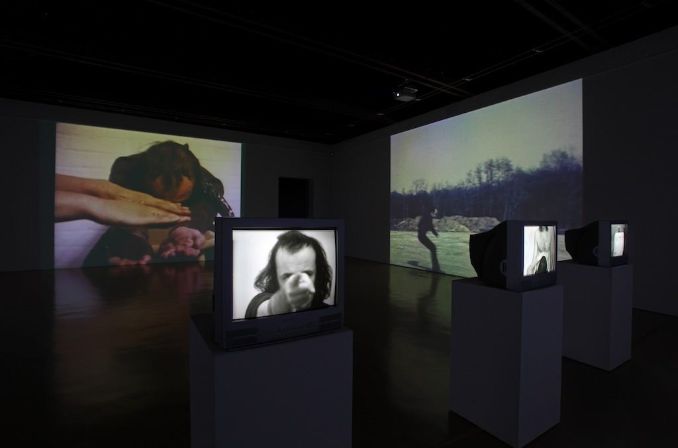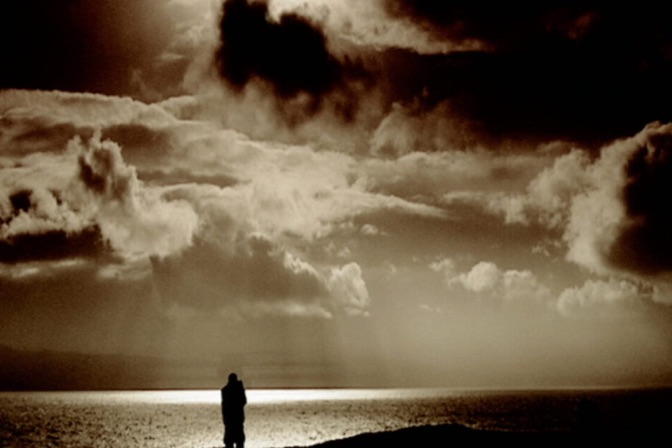A Daughter’s View: The Photography of Jo Spence and Rosy Martin is an exhibition of work by Rosy Martin (b.1946, London) and Jo Spence (b.1934 – 1992, Camden, London) who worked together from 1984, developing a new photographic practice focused on portraiture and identity studies.
Rosy Martin is an artist using self-portraiture, still life photography and video, and as a photographer/therapist to extend the range of potential meanings within notions of domestic
A Daughter’s View: The Photography of Jo Spence and Rosy Martin is a powerful exhibition that explores the personal and collective realms of portraiture, identity, and memory, through the unique collaboration between two pioneering artists, Rosy Martin (b. 1946, London) and Jo Spence (b. 1934 – 1992, Camden, London). Together, from 1984 onward, they developed a new photographic practice that went beyond traditional portraiture to engage with deeply personal and transformative themes.
Rosy Martin is a multifaceted artist whose work combines self-portraiture, still-life photography, digital imaging, and video. An artist using self-portraiture, still life photography and video, and as a photographer/therapist to extend the range of potential meanings within notions of domestic Her artistic approach cannot be separated from her background as a photographer-therapist. Her interest lies in uncovering the hidden layers of human experience—through photography, she explores memory, identity, and unconscious processes. Starting in 1983, she began collaborating with Jo Spence, which marked the beginning of their exploration of phototherapy. This practice uses the act of re-enactment, allowing individuals to physically and symbolically rework personal narratives through photography, thus making visible the unspoken and unprocessed layers of identity and history.
For Martin, photography becomes a tool for self-exploration and healing. The act of taking a photograph, rather than simply capturing an image, is an act of working through one’s emotions, memories, and psychological states. In her work, the camera is not only a medium but a therapeutic device, a means of confronting the inner world and reinterpreting it.
Jo Spence was a groundbreaking British photographer, writer, and cultural worker, known for her fearless approach to documenting personal and collective histories. Initially starting her career in commercial photography (family portraits and weddings), Spence’s shift in the 1970s toward documentary photography marked the beginning of her deep politicization, particularly through the lens of socialist and feminist thought.
One of Spence’s most iconic series was focused on her own battle with breast cancer, where she used self-portraiture to challenge conventional depictions of the female body. Her intimate, unflinching images dismantled the societal expectations of beauty, confronting notions of idealized femininity. This shift was also heavily influenced by her work in photo therapy, a practice that utilized photography as a tool for psychological recovery. Spence’s portrayal of her illness was not just an act of personal catharsis but a radical reconstruction of the female form, which traditionally has been idealized and objectified.
Her work is both deeply personal and broadly political, combining art, activism, and psychology to engage with the complex relationships between identity, gender, and the body.
Together, Jo Spence and Rosy Martin produced a body of work that straddles the boundaries of photography, performance, and therapy. Their collaboration is particularly significant because of its unique blending of self-exploration and public engagement. Both artists made themselves the subjects of their work, documenting their own experiences, struggles, and transformations. Their self-portraiture was not about self-idealization but about confronting and engaging with the realities of their own identities—both individual and shared.
Their photographic practice, later termed phototherapy, was based on re-enactment and personal storytelling. By revisiting their own pasts, they created narrative portraits that function like visual storytelling, often fragmented and non-linear, akin to dream sequences. The works challenge conventional notions of portraiture, offering a more dynamic and multifaceted view of identity. They explored what comes before, during, and after a photograph—considering the emotions, memories, and contexts that might be hidden within a single image.
The themes present in A Daughter’s View are vast and diverse, but they all speak to the idea of identity constructionin the everyday drama of life. Through embodiment and re-enactment, Spence and Martin delve into the psychic and social construction of identities, creating works that reflect the multiplicity of roles and experiences that an individual inhabits throughout their life.
Some of the key themes explored include: Gender and Sexuality: How societal expectations of gender roles shape personal identities, and how these can be subverted or redefined through personal expression. Ageing: The process of growing older, and how the body and identity evolve in response to time. Memory: The complex ways in which personal and collective memories shape our identities, and how these memories can be re-interpreted through photography. Health and Disease: Personal experiences with illness, particularly Spence’s own battle with breast cancer, and how the body’s vulnerability is expressed and transformed through art. Family Dynamics: The role of family in shaping identities, and the complexities of kinship and heritage. Loss and Grief: The emotional weight of loss, whether through bereavement or personal transformation, and how photography acts as a method of processing grief.
Their work also offers a subtle yet profound critique of representation and visual culture, particularly when it comes to the ways that feminine identity and female bodies are portrayed in mainstream media. Rather than adhering to the idealized or commodified images of women often seen in commercial and art photography, Spence and Martin’s portraits become a tool to deconstruct those stereotypes.
The exhibition A Daughter’s View: The Photography of Jo Spence and Rosy Martin was produced and exhibited at the Watershed Photographic Gallery with the support of Arts Council England. This exhibition offered a rare opportunity to engage with the collaborative legacy of Spence and Martin, whose work has had an indelible influence on the way we think about portraiture, identity, and photography as a form of social practice.
Their pioneering efforts in phototherapy and their radical approach to photography continue to inspire new generations of artists, activists, and academics. Their work, though deeply personal, also transcends the individual, addressing issues that are universal and deeply human. It serves as a reminder of the power of photography not just to represent reality but to transform it—offering a space for healing, reflection, and the reimagining of one’s own identity.
Jo Spence and Rosy Martin’s collaborative work in A Daughter’s View represents a profound intersection of art, psychology, and feminism. By deconstructing the layers of personal and collective identity through photography, they created a body of work that redefined what it means to see and represent oneself. Their phototherapy practice, based on re-enactment, opened up a new realm of possibilities for both art and therapy, creating a lasting legacy of healing, reflection, and empowerment through the lens of the camera. Their art brings the private into the public, where personal narratives are woven into broader social and political contexts, challenging the boundaries between art, therapy, and life itself.
A Daughter’s View: The Photography of Jo Spence and Rosy Martin was produced and exhibited at Watershed Photographic Gallery, with support from Arts Council England.









